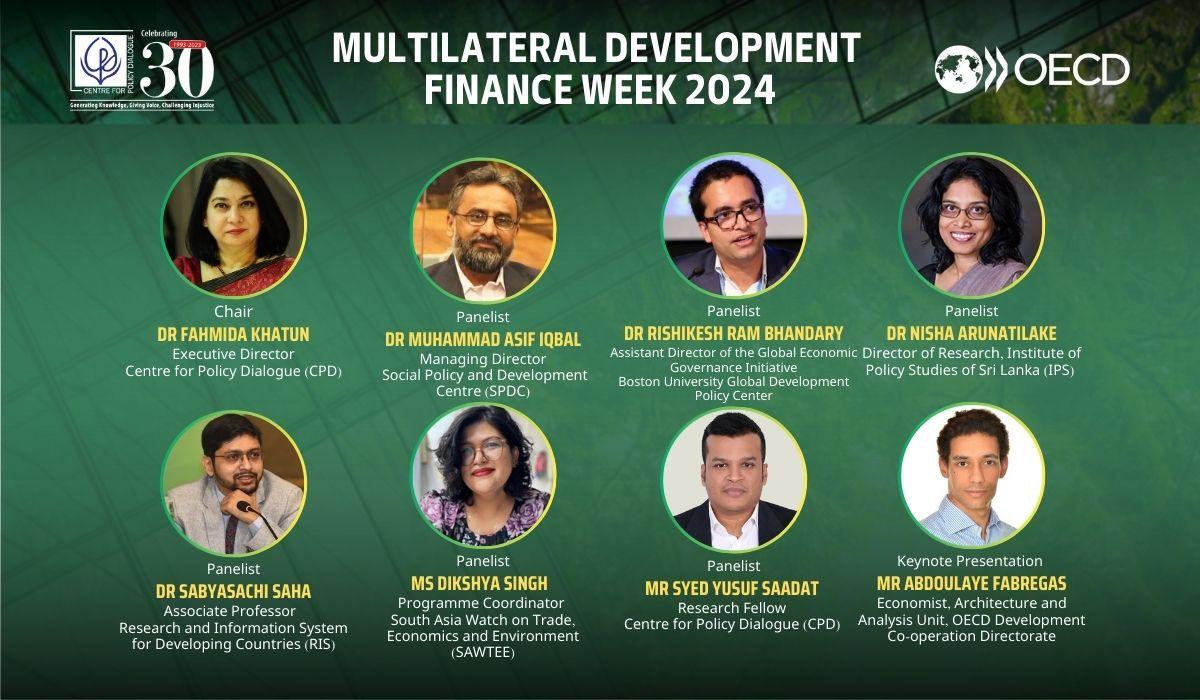
The Multilateral Development System is undergoing a significant number of challenges due to polycrisis, geopolitical shifts, and ongoing global financial architecture reforms. The multilateral system now channels a growing share of development aid, with Development Assistance Committee (DAC) member contributions to multilateral organisations increasing for the seventh consecutive year in 2022. Multilateral outflows rose by 12 per cent, and 61 per cent of official development assistance (ODA) now flows through multilateral channels, up from 45 per cent in 2012. However, while addressing crises, it is crucial to maintain core funding for long-term goals. Core contributions have declined from 69 per cent in 2010-2012 to 58 per cent in 2020-2022, with a shift toward earmarked funding. Additionally, despite overall financial increases, concessional financing for the poorest countries has decreased, potentially impacting poverty reduction and debt support efforts.
These are some of the findings that emerged in the Webinar titled “Launching of the ‘Multilateral Development Finance 2024’ Report” on Sunday, 29 September 2024, organised by the Centre for Policy Dialogue (CPD) and Organisation for Economic Co-operation and Development (OECD). The report was internationally launched on Thursday, 5 September 2024.
In her welcome remarks, Dr Fahmida Khatun, Executive Director, CPD, remarked ‘Multilateral finance plays a crucial role in sustainable development. OECD data shows that multilateral development finance’s share of total official development finance has grown from 45 per cent in 2012 to 61 per cent in 2022. However, with increasing demand, the multilateral development finance system and Multilateral Development Banks (MDBs) need to expand their capabilities. This requires reform of both the system and MDBs themselves’.
In his keynote presentation, Mr Abdoulaye Fabregas, Economist, Architecture and Analysis Unit,
OECD Development Co-operation Directorate urged ‘With emerging and non-traditional donors playing an increasingly important role, we believe it is time to strengthen dialogue on multilateral cooperation between OECD DAC members and other types of donors. Existing OECD policy frameworks and platforms, such as the Regional Policy Dialogues, could be instrumental in facilitating this discussion’.
Mr Fabregas identified three key challenges for OECD members and multilateral stakeholders. Firstly, multilateral development finance has seen significant growth, with OECD contributions reaching record levels in 2022. A growing share of ODA is being channeled through multilateral institutions, which may soon become the primary ODA channel.
Secondly, crisis funding, driven by humanitarian aid, COVID-19, and the Ukraine war, has spurred this growth. However, there are concerns that long-term development issues may be neglected.
Thirdly, pressure to reform the multilateral system is increasing, with new entities and ongoing reforms of MDBs requiring careful monitoring.
He also added that the rise of emerging donors, such as China, introduces new opportunities but adds complexity and fragmentation to the system.
Ms Dikshya Singh, Programme Coordinator, South Asia Watch on Trade, Economics and Environment (SAWTEE), highlighted ‘Previously, the volume of loans and grants Nepal received from development partners, both bilateral and multilateral, was almost equal. In some years, grants even surpassed loans. However, over the past decade, loans have significantly outstripped grants. Currently, around 75 to 80 per cent of the ODA Nepal receives is in the form of loans, which must be repaid with interest.’
While sharing her concerns related to donor-funded projects, Dr Nisha Arunatilake, Director of Research, Institute of Policy Studies of Sri Lanka (IPS), underscored ‘A key concern is the emphasis on maximising contributions to “high-impact” funding mechanisms. While these address critical needs, measuring the impact of MDF projects—especially in social development—can be difficult, as results often take time to become visible. Interventions like changing unhealthy habits or social norms require long-term efforts, and their impacts may not be immediately apparent. However, this does not diminish their importance, as outcomes depend on various factors such as economic policies, social conditions, and political stability, as seen in Sri Lanka.’
The initial high expectations for scaling finance have not materialised, remarked Dr Sabyasachi Saha, Associate Professor, Research and Information System for Developing Countries (RIS). He elaborated that OECD’s report last year highlighted key bottlenecks, such as capacity issues, reporting mechanisms, and credit rating criteria, which still persists.
Dr Rishikesh Ram Bhandary, Assistant Director of the Global Economic Governance Initiative, Boston University Global Development Policy Center, mentioned that the need for multilateral finance is clear, especially in South Asia, where the cost of capital is high and market access is limited. Countries in the region need significantly scaled-up multilateral finance, especially for clean energy investments. Currently, the majority of such investments are concentrated in advanced economies and select emerging markets, leaving many countries behind.
‘The role of multilateral organisations has given South Asian countries access to valuable resources and technical expertise, but it also presents challenges’, highlighted Mr Muhammad Asif Iqbal, Managing Director, Social Policy and Development Centre (SPDC). He elaborated that the increased fragmentation and complexity in dealing with multiple institutions, each with its own priorities, makes it harder for countries, especially those with limited administrative capacity, to manage reporting and evaluation, often leading to delays in project implementation.
While discussing external debt borrowing, Mr Syed Yusuf Saadat, Research Fellow, CPD, said, ‘For Bangladesh, as in many developing countries, external borrowing has played a crucial role in financing development projects. However, this reliance on external debt has also introduced significant vulnerabilities to the economy. In recent years, Bangladesh has accumulated more external debt than in the first few decades following its independence in 1971, raising concerns about the country’s debt sustainability’.
The webinar was attended by academics, experts, and researchers from think tanks in South Asia, who participated actively and shared their opinions.



